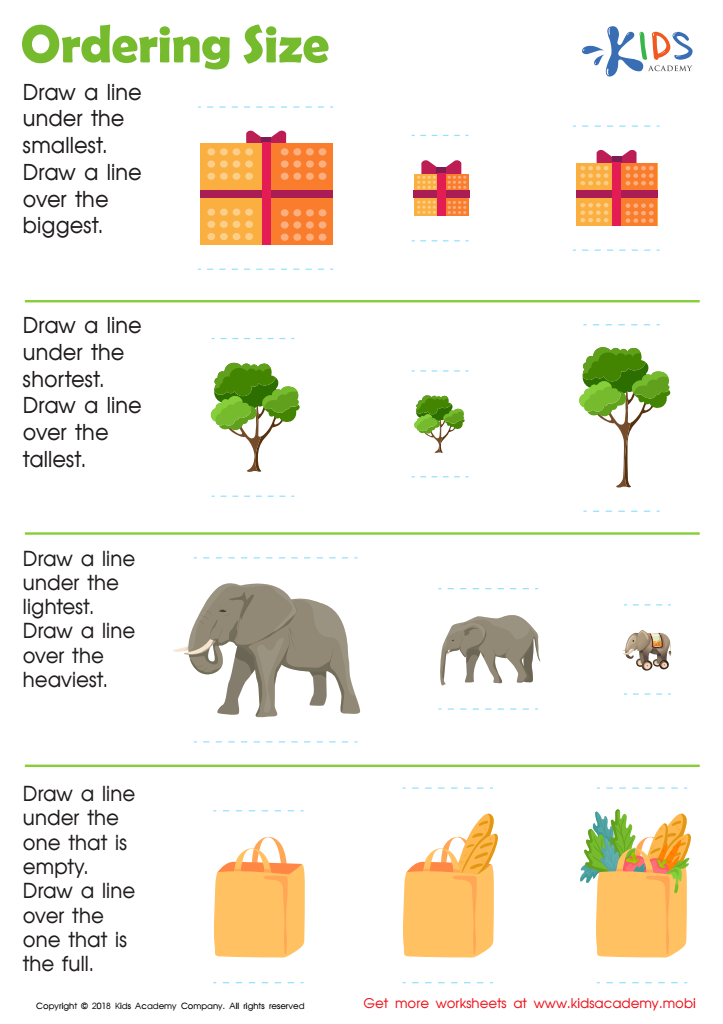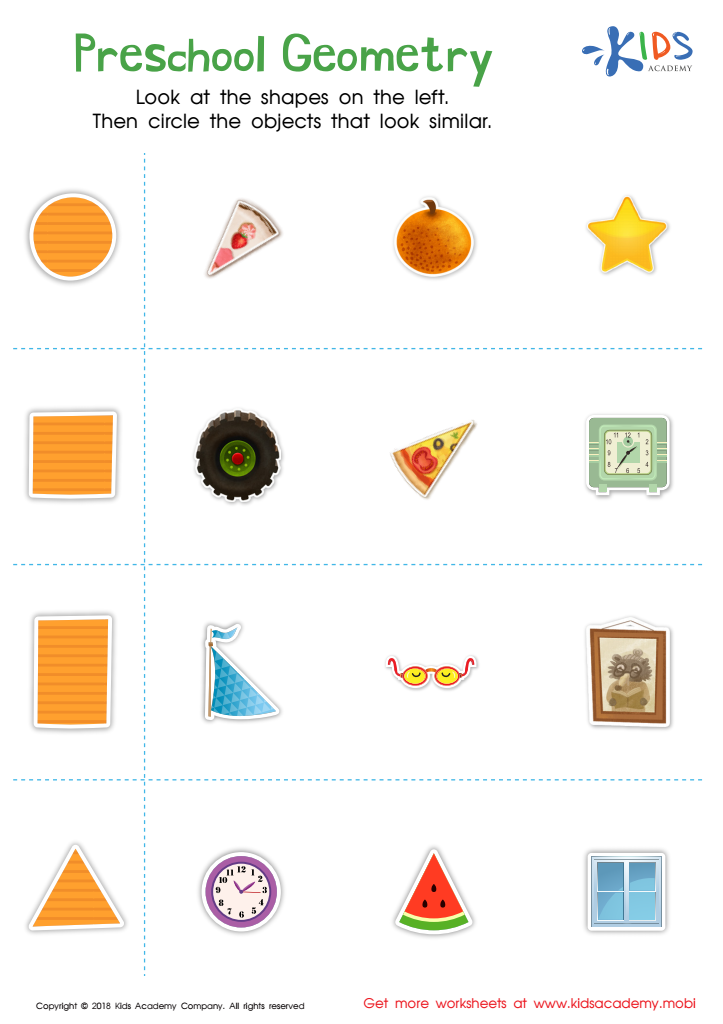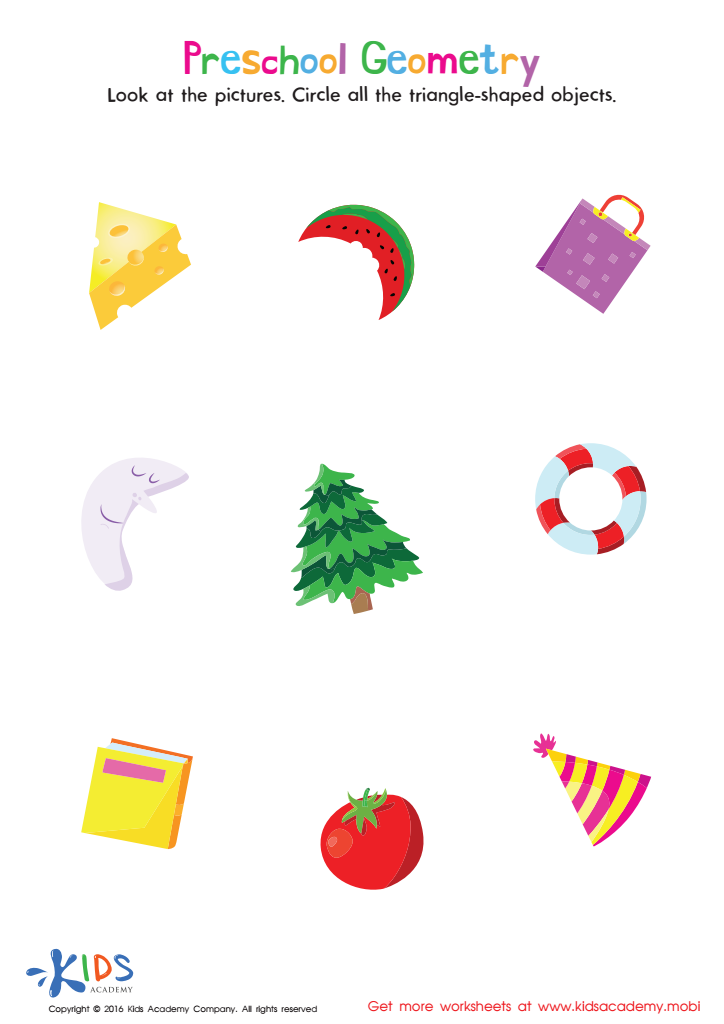Basic geometry understanding Normal Math Worksheets for Ages 4-6
3 filtered results
-
From - To
Explore our engaging "Basic Geometry Understanding Normal Math Worksheets" designed for children aged 4-6. These worksheets provide a fun and interactive way for young learners to grasp essential geometric concepts. Through vibrant illustrations and age-appropriate activities, children will identify shapes, understand spatial relationships, and develop critical thinking skills. Each worksheet is tailored to support early math education, fostering a love for learning while building a strong foundation in geometry. Perfect for parents and educators, our resources ensure a comprehensive approach to early math skills. Start your child's geometry journey today with our engaging and enjoyable worksheets!


Ordering Size Worksheet


Preschool Geometry Worksheet
Understanding basic geometry is crucial for children aged 4-6, as it forms the foundation for more advanced mathematical concepts. Teaching geometry at this early stage aids in cognitive development by fostering spatial awareness and problem-solving skills. Children learn to recognize shapes, sizes, and patterns, which enhances their ability to categorize and make connections in everyday life.
Moreover, geometry helps improve fine motor skills through activities that involve drawing shapes or assembling geometric puzzles. Engaging in hands-on experiences with physical shapes enhances learning, making abstract concepts tangible. This lays essential groundwork for skills such as measurement and systematic thinking, which are vital in further education.
For parents and teachers, nurturing an understanding of geometry can promote confidence in young learners. When children can identify geometric concepts in the world around them, they develop critical observational skills that contribute to overall learning and reasoning abilities.
Additionally, fostering an early interest in math encourages a positive attitude towards learning and builds resilience in tackling challenging tasks. Advocating for basic geometry education equips children not just in mathematics, but also in skills that support their social and emotional growth, preparing them for a well-rounded academic journey.
 Assign to My Students
Assign to My Students

















